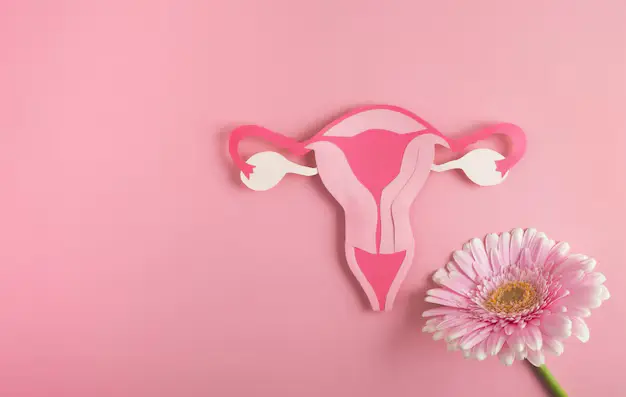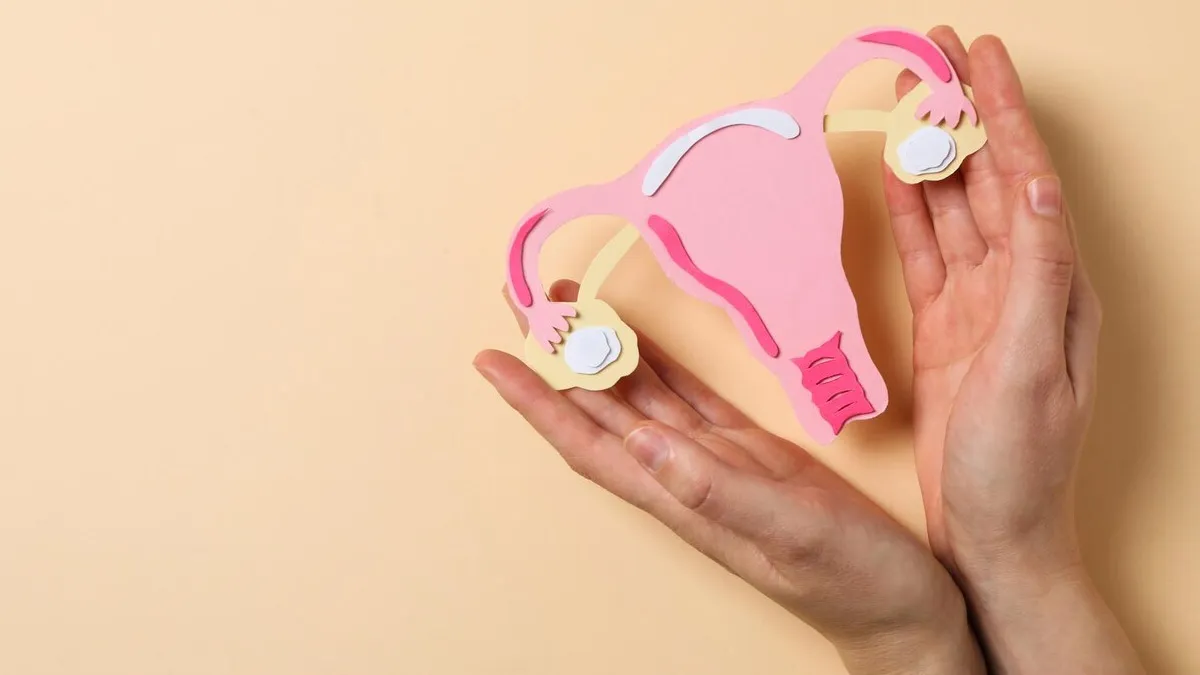Menopause brings many physical and emotional changes, leaving many women wondering what truly happens inside their bodies. A common question is whether the ovaries can “dry up and disappear.” SensIQ, a neurologist-developed system designed to support women in midlife, addresses these concerns by combining science-backed clarity with practical guidance.
This article explores what happens to the ovaries, uterus, and broader female reproductive system, drawing on medical expertise, including insights from Dr. Luke Barr, to provide reliable and understandable answers.
Ovaries do not dry up and disappear. They shrink naturally with age, stop releasing eggs, and reduce hormone production, but they remain part of the female reproductive system throughout life. This quick answer provides reassurance before exploring the details of how ovarian changes occur during and after menopause.
Key Takeaways
- Ovaries shrink with age and stop releasing eggs, but they do not dry up and disappear from the female reproductive system.
- After menopause, ovaries produce only small amounts of hormones, leading to symptoms such as vaginal dryness, reduced sex drive, and hot flashes.
- The uterus also changes with age, with a thinner lining and smaller size, which can affect long-term health and increase certain risk factors.
- Red-flag symptoms like severe pelvic pain, unexpected bleeding, or missed periods before age 40 require prompt medical evaluation.
- Options such as lifestyle changes, medical care, and non-hormonal support like SensIQ can help women manage menopause-related side effects safely.
Do Ovaries Shrink or Disappear With Age?
Do your ovaries dry up after menopause?
After women reach menopause, the ovaries no longer release eggs, and their hormone levels decline. While they do shrink in size, they do not dry up completely or vanish from the body. This shrinkage is a normal process linked to the end of the menstrual cycle and reduced estrogen and progesterone production.
Do ovaries dry up, shrivel, or go away?
It is a myth that ovaries disappear. Instead, they gradually become smaller and less active. They remain part of the female reproductive system throughout life, even after fertility ends. Shrinkage can lead to symptoms like hot flashes, vaginal dryness, or changes in sex drive, but the organs themselves remain.
Why do ovaries shrink with age
Ovarian tissue naturally changes with age. By around age 40, many women begin to experience reduced egg supply, and by the time they reach menopause, the ovaries have lost most of their ability to release eggs. This is part of the body’s natural aging process, not a sign of disease.
What Happens to Ovaries After Menopause

Do ovaries produce estrogen after menopause?
Once women reach menopause, their ovaries produce only minimal amounts of estrogen. Most estrogen circulating in the body comes from other tissues, like fat cells. This lower estrogen level can cause common side effects such as night sweats, mood swings, and changes in skin and bone health.
Do ovaries produce hormones after menopause?
Even though estrogen and progesterone decline, ovaries continue producing small amounts of androgens. These hormones play a role in bone density, muscle strength, and sex drive. However, they are not enough to fully replace the hormones lost during menopause.
Ovaries not producing eggs: symptoms
When ovaries stop releasing eggs, women notice changes such as the end of the menstrual period, infertility, and a variety of menopause symptoms. These may include irregular cycles before menopause, vaginal dryness, and fatigue. These signs reflect the body’s shift away from active reproductive function.
Fertility and ovarian atrophy explained
Ovarian atrophy is the medical term for the ovaries shrinking with age. This process signals the natural end of fertility. While it can feel concerning, it is a normal stage of the female reproductive system. Fertility is no longer possible after menopause, but health and quality of life can remain strong with proper care.
What Happens to Your Uterus as You Age
Uterine size and lining changes
As hormone levels drop after menopause, the uterus also changes. The lining, which once thickened during each menstrual cycle, becomes thin. The uterus itself may become smaller, though it remains intact. These changes reflect the body’s transition away from preparing for pregnancy.
Long-term health effects
A thinner uterine lining lowers the chance of endometrial growth, but other risks may appear. Women may face a higher risk of conditions such as osteoporosis or heart disease due to reduced estrogen. Monitoring uterine and ovarian health with regular check-ups helps maintain a healthy aging process.
Medical Concerns About Ovaries
Why has my ovary disappeared?
Sometimes imaging scans may suggest an ovary has “disappeared.” In most cases, this is due to natural shrinkage, making it harder to detect on ultrasound. Rarely, an ovary may be surgically removed or damaged by illness. This highlights the importance of medical evaluation rather than assuming disappearance.
How do you know if you have a dead ovary?
A “dead ovary” usually refers to ovarian torsion, where blood flow is cut off. Symptoms include sudden pelvic pain, nausea, or fever. This condition is unrelated to menopause and requires urgent medical care. Women should seek help if they experience severe pain or unexpected changes in reproductive health.
When to Seek Medical Help
Some symptoms should never be ignored, as they may signal urgent medical conditions. Severe pelvic pain, sudden bloating, or unexpected bleeding after menopause require prompt evaluation. Women under age 40 who miss multiple menstrual periods should also consult a doctor.
Other red-flag signs include:
- Persistent pain on one side of the pelvis
- Unexplained infertility before reaching menopause
- Fever with abdominal pain
- Rapid onset of nausea or vomiting linked to pelvic pain
These symptoms may point to conditions like ovarian torsion, premature ovarian insufficiency, or other serious issues. Early medical attention can prevent complications and protect long-term health.
Managing Menopause and Ovarian Changes

Symptoms linked to ovarian decline
As ovaries shrink and hormone production decreases, women may experience:
- Hot flashes and night sweats
- Mood swings and memory issues
- Vaginal dryness and discomfort with intimacy
- Reduced sex drive
- Sleep problems and fatigue
These are common, but they can be managed with lifestyle changes, medical care, and supportive treatments.
Lifestyle, medical, and supplement support
Many women explore options to maintain a healthy balance during menopause. Some choose hormone replacement therapy (HRT), but this may carry a higher risk of breast cancer or other side effects depending on individual risk factors.
Non-hormonal approaches, including evidence-based supplements like those offered by SensIQ, can provide relief without added hormone exposure. Dr. Luke Barr emphasizes that personalized care—considering family history, hormone levels, and overall health—is key to choosing the right support.
Simple steps such as regular exercise, a balanced diet, and medical check-ups help reduce risk factor concerns and support long-term wellness. Supplements that target brain fog, sleep, or mood changes can help women feel more like themselves again.
Frequently Asked Questions
Can ovaries dry up and disappear completely?
Ovaries do not disappear. They shrink as women reach menopause and hormone levels fall, but they remain part of the female reproductive system. The ovaries stop releasing eggs and producing estrogen and progesterone in significant amounts, yet they do not vanish.
Do ovaries produce hormones after menopause?
After menopause, the ovaries produce very small amounts of hormones. Estrogen and progesterone decrease sharply, while a limited production of androgens continues. These low hormone levels may still influence bone health, sex drive, and metabolism, but they are not enough to maintain the menstrual cycle.
What happens to your uterus as you age?
The uterus often becomes smaller after menopause as the lining no longer thickens each menstrual period. Hormonal decline can also lead to long-term changes, such as a thinner endometrium and reduced elasticity. Regular medical check-ups help track these changes and lower higher risk factors like abnormal bleeding.
When should I see a doctor about ovarian changes?
Women should seek medical advice if they experience unusual pelvic pain, unexpected bleeding, or missed menstrual cycles before age 40. These symptoms may signal ovarian torsion, premature ovarian insufficiency, or other health concerns. Early diagnosis helps manage side effects and reduce long-term complications.

